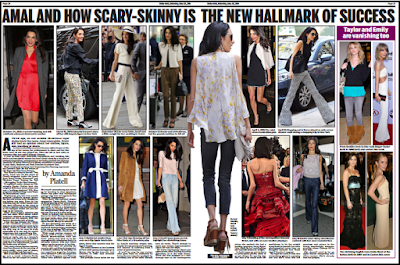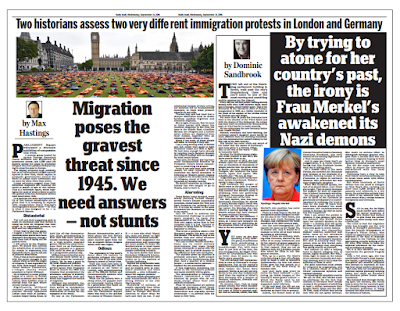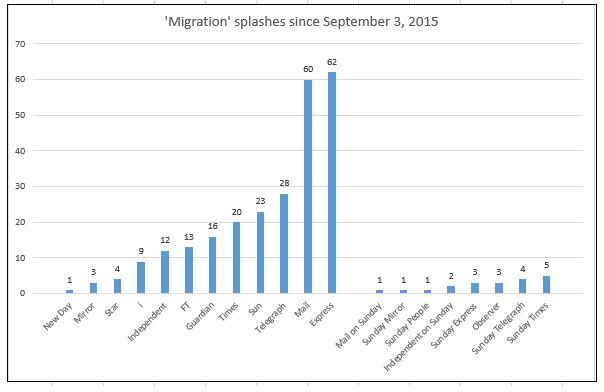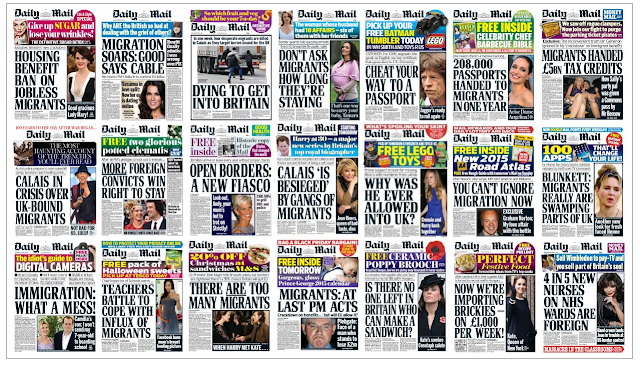For a couple of days last year, the cacophony subsided. For five years the noise had been growing in intensity to the point where it was almost unbearable. Then a photograph of a small boy's body and a Turkish soldier almost silenced it.
Suddenly the snarling was replaced with compassion. Suddenly the "cockroach" was a child.
Aylan (or Alan as he is styled now) Kurdi drowned with his brother and mother on September 2 last year after his Syrian father paid people traffickers to ferry them from Turkey to Kos. Their boat capsized within five minutes of setting sail and Aylan's body was washed up on the beach.
The next day the Independent ran a photograph of the child's body on the shore. Others used the picture of the soldier carrying him up the beach. Newspapers not known for their sympathy for African refugees or their dangerous voyages across the Mediterranean demanded action.
The Sun launched an appeal and within two days was hailing its readers as heroes for raising £350,000 to help children like Aylan; families put up their hands to say they would offer foster homes to the young refugees. David Cameron, who two days earlier had said that Europe's migration crisis would not be solved "by taking more and more refugees", apparently promised to admit thousands, prompting headlines such as "Britain opens its arms to refugees". Fifteen, twenty thousand people would be admitted to Britain, foreign aid money would be diverted to help asylum seekers, "Refugees welcome" banners appeared across the country.
But then there was a new season of Strictly and X Factor and another twist in the VIP child abuse inquiry saga - and the tabloids lost interest.
By the end of the following week, Cameron had ordered a drone to kill a pair of Britons fighting as jihadis in Syria, the Queen had become the country's longest reigning monarch and Paula Radcliffe had been accused (falsely) of being a drugs cheat. Who had time for the boat people now?
Autumn was here, the political machine was cranking up after the summer break and for the newspapers it was time to return to the usual news mix. And, as far as migrants/refugees/asylum seekers were concerned, to return to the usual mix of hand-wringing and hostility.
The Daily Mirror, the one paper that has shunned front-page stories about migration, broke step for three days to cover the Kurdi story and the deaths of four more refugee babies two weeks later. It had not led on any aspect of migration in the previous eight months and has not returned to it since.
The Daily Express, the paper that has been most vociferous in its rejection of immigrants in any circumstances, did not break step. It did not publish the Aylan photograph either on its front or inside, but instead spent a couple of days berating the EU for the human catastrophe unfolding on its borders before resuming normal service with a diabetes breakthrough.
Against the Mirror's three migration splashes last year and this, the Express has managed 90.
 |
| Promises were easy to make the day after that photograph appeared |
The
fifteen or twenty thousand have not, of course, reached our shores. And by
April this year Cameron was denying entry to three thousand unaccompanied
children on the grounds that they were already "safe" in Europe.
For
this he was taken to task by the Daily Mail, which has the sophistication to
differentiate between the vulnerable and those it deems to be unworthy, even if
its readers haven't. It also has the chutzpah to take credit where it may not
be due and so when Cameron did an about-turn, the paper that vilifies economic
migrants and foreign nurses hailed its "victory for
compassion".
Ever
watchful for hypocrisy in others, the Mail acknowledged that it was
"robust" in its opposition to mass migration and took a quick dig at
the "liberal elite" who enjoy the services of cheap plumbers, nannies
and cleaners, as it tried to square the circle of its demand that children who
may be uncomfortable but who were not in danger should be allowed into the
country while those who might contribute to the economy should not.
The three
thousand haven't got here either. And what hope is there for them doing so when
178 children with an absolute legal right to come to Britain - because they are
alone in Europe and have family here - can't cross the red tape?
If it's business as usual for the Press, politicians are just as recalcitrant.
 |
| The Sun pages 1, 2 and 5 on August 31 |
It is not only the Mail that can differentiate between "good" and "undesirable" migrants. Last Saturday, Arkadiusz Jozwik was kicked to death by a gang of teenagers in a small shopping arcade in Harlow, Essex, apparently because he was speaking Polish. The crime was shocking and the Sun was one of only two national papers to recognise its newsworthiness. It splashed on the story - and then, without a hint of irony or self-awareness, published a set of statistics on page 2 about hundreds of thousands of "hidden" EU migrants.
So on page 1, the paper mourns a solid family man who came to Britain thanks to his homeland's membership of the EU, and on the very next page decries the fact that anyone should be able to enter the country on those terms.
Oh yes, and a little further back there was a spread that likened the Calais Jungle to a festival site, describing a "booming micro-economy" with shops, restaurants, churches, mosques, two musical halls, a nightclub and a boxing gym. An accompanying single says that one "illegal" is stopped every hour in the UK.
 |
| The Sun pages 8-9 on the day it reported the murder of Arkadiusz Jozwik |
The paper might rightly argue that once here, anyone should be safe from murderous gangs, but might it not also pause to consider whether the rhetoric coming from Fleet Street is inflaming the situation?
Only a few days earlier, the paper's first instinct on learning that five young men had been drowned on Camber Sands was to ask if they were illegal immigrants - on the basis that they were not white and had been wearing shorts. They turned out to be a group of friends on a day trip from London.
The Leave campaign in the EU referendum and its newspaper supporters made great play of immigration and of how leaving the community would give Britain back control of its borders - and there has been
strong evidence of a rise in racist or "hate" crimes since the vote in June.
A certain section of our society appears to have believed that the moment the votes had been counted, all foreigners would be put on the next boat and that any who remained were fair game. It is frightening.
Going through the Sun's coverage of the issue so far this year, SubScribe had collated 120 almost entirely negative news reports and opinion pieces when this one from June 28 turned up:
 |
| This spread, from June 28, was The Sun's 121st "migrant" story of the year |
The Mail and the Sun may be able to tell the difference between refugees from war zones and Romanian car-washers, but how often do they bother - and can their readers? And why be so nasty about anyone wherever they come from?
People are, sadly, mugged at cashpoints all over the country every day, but if the perpetrator is a Romanian, it's national news. And if the crime is more serious - rape or murder - it's worth a page lead at least.
For the Daily Express, all foreigners are a problem and everything is Europe's fault. Since the Cameron became Prime Minister in 2010, the paper has splashed on migration issues on 179 occasions - including today - with a marked acceleration since the run-up to January 2014, when Romanians and Bulgarians were given full access to the UK. And that's not taking into account all the puffs at the top of the page when advice on living longer or rising house prices take centre stage.
Why? The paper has yet to respond to SubScribe's inquiries, but it may be supposed that if one were forthcoming, the answer would be "because it is what most concerns readers".

In that it would have corroboration from
Ipsos-Mori's monthly "issues" polls. Since that 2010 election, immigration has regularly emerged as the subject most frequently mentioned by voters. Fair enough, but another such topic is the health service and yet - miracle cures apart - the state of the NHS has bothered the Express's splash headline writers on only a handful of occasions over the past six years.
[The Mail, which - with 122 - comes second to the Express on the number of migration splashes since May 2010, is constantly on the case of the NHS, GPs and junior doctors.]
But do these papers reflect or feed public fears about immigration?
SubScribe has been monitoring front pages for some years and it's actually quite hard to determine what should be included in these "migration" charts and the composites
@gameoldgirl routinely posts on Twitter.
There's a lot of complaining about the proportion of the national budget spent on foreign aid (0.3%), how it should be diverted and the dodgy places that it is sent to (with some justification). These sorts of stories have been excluded.
So, too, have been stories about benefits going abroad to expats, those about Muslims who may not have integrated into UK society quite as the Mail or Express might wish, and all terror-related splashes.
It should also be pointed out that the "heavies" - the Telegraph in particular - are perhaps under-represented, since they often have immigration stories on their fronts, but these are only included on the #chartofshame if they are the lead to the paper.
That still leaves rather a lot.
As mentioned before, the Mirror does not lead on migration. The Sun and Star see footballers and reality TV stars as better sellers, but are generally hostile. The Telegraph is not quite as fevered as the white-top tabloids, but shares their outlook. The Guardian, i and Independent are all generally sympathetic, while the Times tries to steer a middle course.
The chart above relates to print editions, since the papers are collated on the basis that they are what people see in the supermarkets and on television, and so have a greater impact than their circulations alone might imply.
The Independent figure therefore runs only to the end of March, when it ceased publishing in print. Since then, it has continued to produce and share "front pages" of its digital edition and nine of these were devoted to immigration - most of them neutral or sympathetic.
The same cannot be said of the Express, Mail or Sun. And there is a groundswell of opinion that something needs to happen to stop this dangerous drip-feed of negative headlines.
How can that be achieved?
My tweets are widely shared and common responses are "don't buy that rag" or "it should be shut down". Well, it's not a good idea to shut down a newspaper just because you disagree with it - and 60 million people don't buy any of those three papers, so "not buying" doesn't seem to be having any effect at the moment.
Now at least two groups are mobilising to try to affect change.
CitizensUK is an organisation that seeks to help to settle immigrants into the community and it is particularly concerned about Britain's slowness in helping refugees and about the recent rise in "hate" crime.
Yesterday it organised a "memorial" service for Aylan Kurdi outside the Home Office, urging politicians and officials to act speedily to admit those 178 children who have an absolute right to be here and a further 209 who could come under Alf Dubs's amendment to the immigration bill. That seeks to help the most vulnerable, who may not have relatives in the UK, but have "valid claims for protection". Next week the group will host
a "Refugees welcome" summit in Birmingham to assess progress since last year and consider further action.
 |
| The Aylan memorial outside the Home Office. Photo: Ana Ferreira |
In the meantime, some of its members are looking at ideas to try to persuade newspapers to tone down their language, including an approach to the Press regulator Ipso.
SubScribe asked Ipso if it was comfortable with coverage as it stood and whether there was any way it could tackle the cumulative effect of stories that might not individually contravene the editors' code. Its director of external affairs Niall Duffy confirmed that the regulator considered stories on a case-by-case basis, but pointed out that it did have the power to instigate an investigation of its own without any complaint if it considered the issue serious enough. It did, indeed, do exactly that with the Brooks Newmark sting a couple of years back. SubScribe is still awaiting a reply to the question of whether the immigration coverage might qualify.
There are those who believe that Ipso cannot be an effective regulator because it is still in the pay of the big newspaper publishers. The putative rival regulator, Impress, recently started consultation on its own draft code of conduct.
Policy and complaints officer Brigit Morris was hopeful that the end product would be strong enough to tackle such drip effects, describing them as a very important and challenging area for regulation. Morris said that the code committee had considered the issue and that Impress's discrimination provision set a high bar for publishers, including an obligation not to incite hatred against a group.
While the draft code does not specifically address cumulative discrimination as this is very difficult to enforce in a regulatory sense, Impress believes that the draft provision would generate a better culture at news publications when it comes to running stories that discriminate against individuals or groups on the basis of their protected characteristics
She added, however, that - like Ipso - complaints could not be advanced based on a collection of articles, but that the Impress board - again like Ipso - would have the power to start its own investigations in serious circumstances "where there is evidence of systematic wrongdoing".
In other words, it's pretty much the same - and no national publisher has yet signed up to be regulated by this organisation.
Not encouraging.
Another approach is to try to convince advertisers not to spend with newspapers that paint a relentlessly negative portrait of foreign nationals coming to our country or in need of our support. Step forward Richard Wilson.
Sixteen years ago, Wilson's elder sister was among the victims of a massacre in Burundi. What happened next coloured his view of life and the Press. A Daily Mail reporter approached his mother - who had taught English to refugees from a slew of conflicts - to tell her story. She gently showed him the door, explaining that she had lost count of the number of newspaper articles - many from the Mail - that she had seen portraying refugees as liars, cheats, frauds, “bogus” people.

My mother had seen the effect of these stories on government policy, and she’d seen the effect of those increasingly harsh policies on her students. She would feel she was betraying them now if she had anything to do with the Daily Mail... Just three days after suffering one of the worst blows of her life, faced with a representative of an organisation that she and most of her colleagues regarded as something close to “hate media”, she’d shown a calmness and dignity that I found quite extraordinary.
When Wilson saw Katie Hopkins's column in the Sun describing Mediterranean boat people as cockroaches, it struck a chord. It was the very simile used by "hate radio" stations to explain the 1994 genocide in Rwanda. A year later, the tide of anti-immigration coverage before the referendum spurred him to set up a Facebook page called
Stop Funding Hate and
a petition aimed at persuading Virgin to stop advertising in the Express, Mail and Sun. A big target, but a well-chosen one, since Branson himself had advocated the power of petitions
in his own blog a few years back.
Virgin is still advertising with the target tabloids, but the Facebook page has had more than five million views, attracted 78,000 "likes" and the petition has more than 41,000 signatures.
Wilson says:

Our aim is to shift the balance of incentives so that running hate campaigns costs newspapers more money through lost advertising than it makes them in sales.
We hope that this will contribute to a long-term improvement in the quality and tone of Sun, Mail and Express coverage about the groups that they have previously demonised.
I hope that we can also contribute to a wider debate about the extent of demonisation and hate speech across the board. It clearly isn't just about the right-wing press. It also seems endemic in left wing discourse and everywhere in between. Somehow describing human beings as "vermin", "traitors", "cockroaches" and "monsters" seems to have become normalised. And these words have consequences.
So what's the strategy?

We are building a team of volunteers to carry out more in-depth research - to identify and track advertisers in the Sun, Express and Daily Mail more systematically - especially where there seems to be a strong clash with the company's brand values and/or with the values of the advertiser's target customer base. This research will then inform the development of the campaign as we start to widen it out.
We've already found some quite surprising cases - for example this week Waitrose, Iceland and M&S were all running adverts in the Daily Express. What's striking is that companies that might shy away from supporting other types of socially harmful activity don't yet seem to make the connection when it comes to media hate campaigns. We're hoping that strong consumer pressure might start to change this. Obviously the first company that does pull their advertising will be showing that they're ahead of the curve in responding to the deep public concern around this issue, so there are some positive incentives too.
It'll be a difficult trick to pull off. The whole essence of an independent Press is that it shouldn't be influenced by people with power or money in their pockets, so do we really want advertisers dictating or censoring editorial content? [SubScribe admits it supports Stop Funding Hate's ambition, but is hesitating about signing its petition for this very reason.] Wilson recognises the delicate balance he must achieve with his campaign, saying the objective is to modify behaviour, not to censor.
And is it not unreasonable for companies to decide that it's not good for their image to be associated with a particular brand or organisation? Look at what happened to Maria Sharapova's sponsorship deals after her failed drug test.
The extreme example of this is the closure of the News of the World when advertisers deserted after the Milly Dowler phone-hacking story. But if Rupert Murdoch hadn't actually wanted to close the NotW, he would have brazened it out.
The campaigners are taking on hugely powerful players who can be guaranteed to deploy their big guns if they feel their challengers are gaining traction. It's not surprising that both groups are turning their attention first to the Express rather than Dacre or Murdoch.
So, finally, what are these groups fighting?
Here are some of the composites, the stats, that SubScribe has collated over the past couple of years, the accumulation of venom and bile coming from an honourable trade that is supposed to hold authorities to account, to defend the oppressed and inform the people. The language and mood are ugly.
The freedom of the Press is an essential element of democracy, but surely we need to find a mechanism that can both protect that and stop this:
Sometimes a story is so beguiling that it can be regurgitated several times over a few years. See this
old blog post and look at the pictures below illustrating Express stories from 2010 and March this year (a follow-up to a Sun spread the day before). Doesn't the house and its interior look familiar?
The drip-feed effect
2011
2013
2014
2015
...and it's not just the splashes (of which more will follow next week). There are the puffs:
...and the columnists:
All of which send just one message:
 |
| Photograph: Getty Images |
Further reading
The whitetops and immigration: the inside story of 2016























































